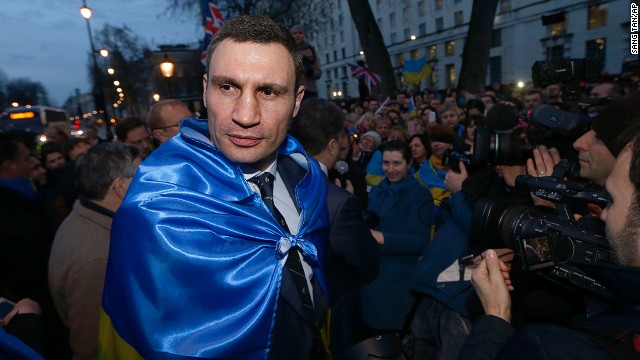Today, a Maidan activist from
Yalta, Crimea, Alexandra (nickname Shura) Ryazanceva, spoke out about
recognising her torturers in footage on Russian Channel 1 news. These
‘self-defense’ fighters were on the news reportedly repelling a supposed
‘banderite’ attack on Crimea.
Ryazanceva, however, was on her way home from the mainland with fellow
activists and journalists when their cars were stopped at a checkpoint blockade
set up by Crimean ‘self-defense forces’ and Berkut soldiers. After finding a
Ukrainian flag in the trunk of her car and a tattoo on Ryazanceva’s forearm
honouring the “Heaven’s Hundred” (fallen heroes of the Maidan), the men became
enraged. The activists and journalists were subjected to physical and
psychological torture (beaten, kicked, dragged by the hair, guns fired close to
their heads, threatened with maiming and killing), and held captive, first in
Armyansk and then in a military base in Sevastopol. They were released on March
11.
Cinematographers from Babylon’13 remain missing since March 16th.
V. Klitschko — one of the
best-known faces of the Maidan protests and former world champion boxer — threw
his support to a competitor for the presidency in hopes of unifying forces
behind a single, pro-Western candidate.
Klitschko, put aside his presidential ambitions in favour of the
billionaire chocolate magnate Petro Poroshenko. The move appeared to reflect
rising concern of a split in support among candidates who want closer relations
with the West. Concern extends to the former prime minister, Y. Tymoshenko,
whose division of opposition could create an opening for a pro-Russia
presidential contender.
Mr. Klitschko said he would
run instead for mayor of Kiev, with a goal of transforming the city into a
‘truly European capital’.
Also today, the Kurultai
[gathering] of the Crimean Tatars considered self-determination in the form of
national and territorial autonomy in Crimea. This is in light of how
the vast majority of the Crimean Tatars boycotted the March 16, 2014 referendum
on Russia’s annexation of Crimea and yet the population of the peninsula now
finds itself facing a new enforced reality.
The Party Of
Regions Conference expelled key leaders from its group: former president, Yanukovych, together with former prime minister
Azarov, former head of the Ministry of Revenues O. Klymenko, former deputy
prime minister S. Arbuzov, former minister of the Department of Energy E.
Stavytskyy, former head of the Donetsk Oblast Administration A. Shyshatskyy.
However, the former head of the presidential administration, A. Klyuyev, was
not on the list of those expelled. Significantly the Party chose to support the
controversial and strongly pro-Russian former governor of Kharkiv
province Mykhailo Dobkin for President, rather than the more moderate Serhij
Tsihipko, also a Party member and Presidential candidate.

Comments
Post a Comment